Recent developments in Iraq make an independent Kurdistan seem all but inevitable.
The leadership of all five major Kurdish political parties in the Kurdistan region of Iraq know, as democratically elected representatives, that the independence of Kurdistan is an uncompromisable demand and the ultimate objective of their electorate. Testimony to this is the consultative independence referendum conducted on January 30, 2005, alongside the Iraqi and Iraqi Kurdistan parliamentary elections. The referendum asked the people of Iraqi Kurdistan whether they favor remaining a part of Iraq or an independent Kurdistan. The result was an overwhelming majority of 98.8% in support of an independent state.
Since the overthrow of Saddam Hussein in 2003, the Kurds have stressed three major requisites to stay within the confines of the artificial borders of the Iraqi state. First, democratic rule manifested in the full implementation of the Iraqi constitution and broad national consensus in Baghdad. Second, a peaceful Iraq free of violence and civil war. Third, equal Arab-Kurd partnership in the governance of Iraq. Bayan Sami Abdul Rahman, the Kurdistan Regional Government’s (KRG) high representative to the United States, has repeatedly stated that if Iraq reverts to dictatorship, is plagued by civil strife or the Kurds are not treated as equal partners, then they will ultimately secede. All these conditions have now been realized.
Expect Change
In light of the current upheaval in the Middle East, it is only natural to expect change. The old order is quickly disappearing, and the Arab Spring is evolving at considerable speed. The transition is still in its early phases, and what will follow — and when — is uncertain. Some borders, however, are likely to be redrawn and new states may emerge as a result. Most of the states in the Middle East were artificially created at the beginning of the 20th century with complete disregard for the ethnic and sectarian make-up of the region. Hence, the only way to ensure the stability of the region is to readjust some of these borders based on the facts on the ground.
In the Iraqi Kurdish political arena, none of the five major political groups — Kurdistan Democratic Party (KDP), Patriotic Union of Kurdistan (PUK), the Change Movement (Gorran), Kurdistan Islamic Union (KIU) and Islamic Group of Kurdistan (IGK) — pragmatic as they may be, would find it feasible or advantageous to prioritize short-term tactical gains over losing the support of the Kurdish people; especially since the issue of independence has gained momentum and huge domestic support as a consequence of the recent turmoil in Iraq.
However, political ties to outside actors also have an impact in this realm. The alliance of the Patriotic Union of Kurdistan (PUK) with the Islamic Republic of Iran and the geopolitical consequences of PUK-controlled areas directly bordering Iran has possibly given the party less freedom than they would desire, as Tehran is strictly against Kurdish independence when compared to Turkey’s largely vague, but seemingly more flexible and unexpectedly positive stance on this issue. Consequently, the Kurdistan Democratic Party (KDP), which has strong ties to Turkey, has gained greater freedom on this matter, partly as a result of the huge economic interests Ankara enjoys in the Kurdistan region.
Prerequisites for Independence
To achieve the goal of independence, Kurdistan has to fulfill five major requisites to ensure independence.
The first prerequisite is economic independence. Without sufficient revenues the survival of Kurdistan is impossible. The Kurdistan region is already developing its own oil resources and distribution network, which is a helpful factor for preparing a potential secession. What is perceived as Kurdistan’s unilateral energy policy is, in reality, an attempt to gain economic independence, as complete independence will be easier to achieve and sustain if Kurdistan produces enough oil. According to Kurdistan’s Ministry of Natural Resources, the oil production forecast is 1 million barrels per day (bpd) for the end of 2015 and 2 million bpd by 2019. If this forecast materializes, the international community would benefit from a viable, stable and oil-producing Kurdistan contributing substantially toward steady and possibly cheaper oil prices on the world market.
It is for these very reasons that the Kurdistan Regional Government (KRG), despite all the obstacles created by Baghdad, is unwavering and determined to produce and export its own oil. The KRG currently produces a monthly income of $400 million, but for the daily running of the Kurdish areas, $1 billion is needed per month, according to data obtained from leading consultants in the field. The KRG has recently connected Kurdistan’s oil pipeline to the newly controlled oil fields of Kirkuk and Bai Hassan, which means their economic independence is closer than ever. Additionally, Hoshyar Zebari’s recent appointment as Iraq’s new minister of finance is indicative of the Kurds not wanting to be subject to any more financial pressure from Baghdad. However, judging from Baghdad’s previous practices and the tensions between the previous Sunni finance minister, Rafi al-Issawi, and former Prime Minister Nouri al-Maliki, this Kurdish objective may be difficult to achieve.
Second, the KRG must demonstrate that an independent Kurdistan will be a viable entity internally. This can be done through good governance, respect for human rights, a competent and professional police force, and economically sound policies. Many Western states will certainly support the Kurds if it is felt that the KRG is committed to democracy and the rule of law.
In addition, the issue of the disputed territories needs resolving. The newly defined de-facto boundaries of Kurdistan should be fortified, consolidated and secured by the Kurdish military, known as the Peshmerga. Crucially, to formalize and legitimize this process a referendum in these newly controlled areas should be held, followed by an agreement with Baghdad. This, however, is not going to be done without compromise from Erbil with regard to certain Arab- and Turkmen-dominated territory. Greater attention also ought to be paid to the training of a professional, effective and devoted military, making use of the arms provided by Western powers in the wake of the recent tragedies in Sinjar and the Nineveh plains.
Third, at the international level, the KRG must guarantee that regional stability will be maintained and that an independent entity will not upset regional states and threaten their territorial integrity. This can be achieved through mutual security treaties and the establishment of good trade and diplomatic relations with regional states, especially Iran and Turkey.
Turkey will play a major role in Kurdistan’s bid for independence. Regional stability and the stability of its NATO ally are major considerations in Washington when it comes to the Kurdish issue. Veteran US diplomat Peter Galbraith once told this author: “Turkey is the only reason there is no independent Kurdistan.” In political and economic terms, it is better for Kurdistan to be closer to Turkey because it is a secular country and close ally of the Western world; Kurdistan sees itself in the same grouping. KRG Prime Minister Nechirvan Barzani has stressed on various occasions that Turkey is already Kurdistan’s top trading partner with an annual exchange of almost $8 billion in 2013. In addition to a wide range of other business opportunities, Turkey is benefiting immensely from Kurdistan’s oil sales as the major export route to the sea terminal of Ceyhan runs through Turkey. Turkey sees the case of Iraqi Kurdistan differently from Kurdish advances in Syria due to their connections to the PKK, thus Turkey’s own Kurdish problem.
Realism in international relations also dictates that the KRG must maintain good relations with regional states, especially a crucial regional power like Iran. Iran already holds the second spot in annual trade exchange with the Kurdistan region at $4 billion for 2013.
Kurds are an Asset
Fourth, gaining the support of a major Western power is also essential. The United States is the ideal candidate to fulfill this role, as it would benefit greatly from a friendly Kurdish state in a largely hostile region. There is already some recognition in Washington that, in a region with a variety of problems, the Kurds are an asset — the US recognizes a reliable ally in the Kurds. As former US Ambassador to Baghdad Zalmay Khalilzad recently stated: “[S]trengthening ties with Kurdistan now will serve American interests down the road.” After the Sinjar massacre and Islamic State (IS) incursion into the Kurdistan region in August 2014, US President Barack Obama described Kurdistan as an “island of decency the Kurds have built.” He expressed determination to preserve this tranquil space as a model for the rest of Iraq and even the Middle East. He stressed: “I do think the Kurds used that time that was given by our troop sacrifices in Iraq.”
Privately, Washington now accepts that Iraq has the potential of breaking up. Based on this author’s research, it can be asserted that while the US used to be opposed to Kurdish independence, the reasons for this opposition no longer remain. Due to the continuous calls by the Kurdish leadership for the right to self-determination, Washington now understands this is what Iraqi Kurdistan really wants. This is a huge barrier to have overcome. America’s major concern now is stability in the Middle East, and contrary to traditional and wrongly held perceptions of the Kurds, the Kurds in Iraq are actually a major stabilizing factor in the region. Thus, a strong, democratic and economically viable Kurdistan — a major partner and ally for the US in the fight against Islamist extremism — would, in fact, be in America’s long-term interest.
Fifth, for this enterprise to succeed, a united Kurdish front is essential — using the office of the president for the Kurdish region as the public face of the campaign, in addition to parliamentary support and the legitimacy derived from the people. Masoud Barzani‘s position as president of the Kurdistan region gives him the necessary legitimacy and authority he needs to advance Kurdistan’s independence agenda. Still, Barzani will need all the support he can get from all five major political parties, especially those with parliamentarians and ministers in government. As Benjamin Franklin famously said before signing the US Declaration of Independence: “We must, indeed, all hang together, or most assuredly we shall all hang separately.”
Looking Ahead
After the events in Sinjar, the Kurdish leadership was forced to change tactics and temporarily make undesired compromises. They suddenly had to make the defeat of IS a national security priority, delay the independence referendum and head back to Baghdad to participate in the reconciliation process. The economic hardship faced by the Kurdish people since February 2014 as a consequence of Baghdad’s decision to suspend the KRG’s share of the national budget, Kurdish attempts at regaining territory lost to IS after August 3, and the cold reception of Western states to Kurdish independence were all contributing factors. This does not mean the Kurds have abandoned their ambition to secede from Iraq. Hemin Hawrami, head of the Kurdistan Democratic Party’s Foreign Affairs Office, has stressed that the current Kurdish strategy is to work on two fronts. First, engage Baghdad to participate in the reconciliation process and to allow for the stabilization of Iraq. Second, make the necessary preparations for Kurdistan’s independence.
The Kurds are only buying time, since the Kurdish leadership knows that Kurdish aspirations will not be realized in Baghdad as they will never be seen as true partners in Iraq, nor is the government in Baghdad trustworthy. The Baghdad-Erbil agreement signed on December 2 — stipulating the resumption of oil exports (550,000 bpd) from the KRG-controlled Kirkuk oil fields and others situated in the Kurdistan region through Iraq’s state-owned oil company SOMO, and the transfer of 17% of Iraq’s national budget from Baghdad to Erbil — merely constitutes the temporary suspension of hostilities. The Kurds see independence as the one and only solution. The Iraqi Arab mentality has not changed; the only thing that has is the politicians. There is no real will for peace, reconciliation and coexistence, as all major Iraqi groups have separate agendas.
The very first Iraqi king, Faisal I, stressed this in a 1932 private memo to a close circle of advisors: “In this regard and with my heart filled with sadness, I have to say that it is my belief that there are no Iraqi people inside Iraq. There are only diverse groups with no national sentiments, they are filled with superstitious and false religious traditions with no common grounds between them.” Nothing has changed in 2015. There is no trust between Baghdad and Erbil, and palpable is the huge tension and ample mistrust between the Arab Sunni leadership and the Shiite leaders in Baghdad. While Kurdish independence has been postponed, the vision, view and goal is still alive and well.
The Kurdish leadership knows very well that a good opportunity has presented itself for independence. Hasty decisions, however, will not be in their interest, as the Kurdistan region already enjoys the trappings and privileges of an independent state without the burdens and commitments it brings. The Kurdish leadership must try to legitimize the process before taking any such step. The president of the Kurdistan region has already indicated that a national referendum will still be held. Preparations are underway — the Kurdistan parliament recently established an independent electoral commission to this end. The date, however, has not yet been determined. He has asked for United Nations supervision akin to the UN-supervised independence referendum of East Timor in 1999. Based on recent developments in the last two decades, and especially since June 2014, an independent Kurdistan seems all but inevitable.
*[Note: Some sources in this article have not been explicitly named. The author and Fair Observer respect their right to remain anonymous.]
Fair Observer is a nonprofit organization dedicated to informing and educating global citizens about the critical issues of our time. Please donate to keep us going.
The views expressed in this article are the author’s own and do not necessarily reflect Fair Observer’s editorial policy.
Photo Credit: Padchas / Sadik Gulec / Shutterstock.com
Support Fair Observer
We rely on your support for our independence, diversity and quality.
For more than 10 years, Fair Observer has been free, fair and independent. No billionaire owns us, no advertisers control us. We are a reader-supported nonprofit. Unlike many other publications, we keep our content free for readers regardless of where they live or whether they can afford to pay. We have no paywalls and no ads.
In the post-truth era of fake news, echo chambers and filter bubbles, we publish a plurality of perspectives from around the world. Anyone can publish with us, but everyone goes through a rigorous editorial process. So, you get fact-checked, well-reasoned content instead of noise.
We publish 2,500+ voices from 90+ countries. We also conduct education and training programs
on subjects ranging from digital media and journalism to writing and critical thinking. This
doesn’t come cheap. Servers, editors, trainers and web developers cost
money.
Please consider supporting us on a regular basis as a recurring donor or a
sustaining member.
Will you support FO’s journalism?
We rely on your support for our independence, diversity and quality.









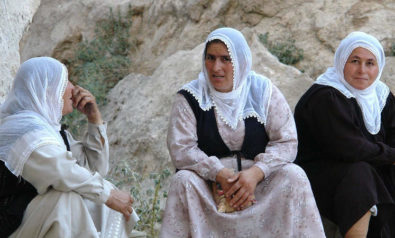

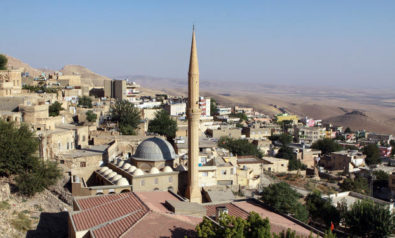
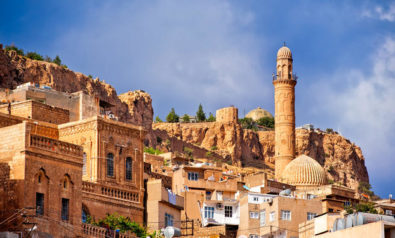
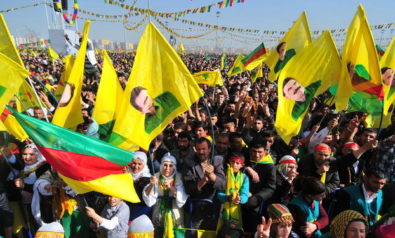
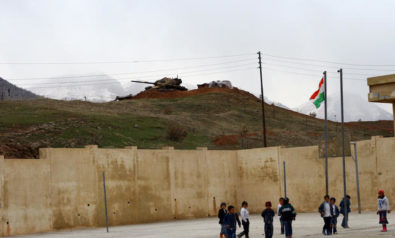

Comment